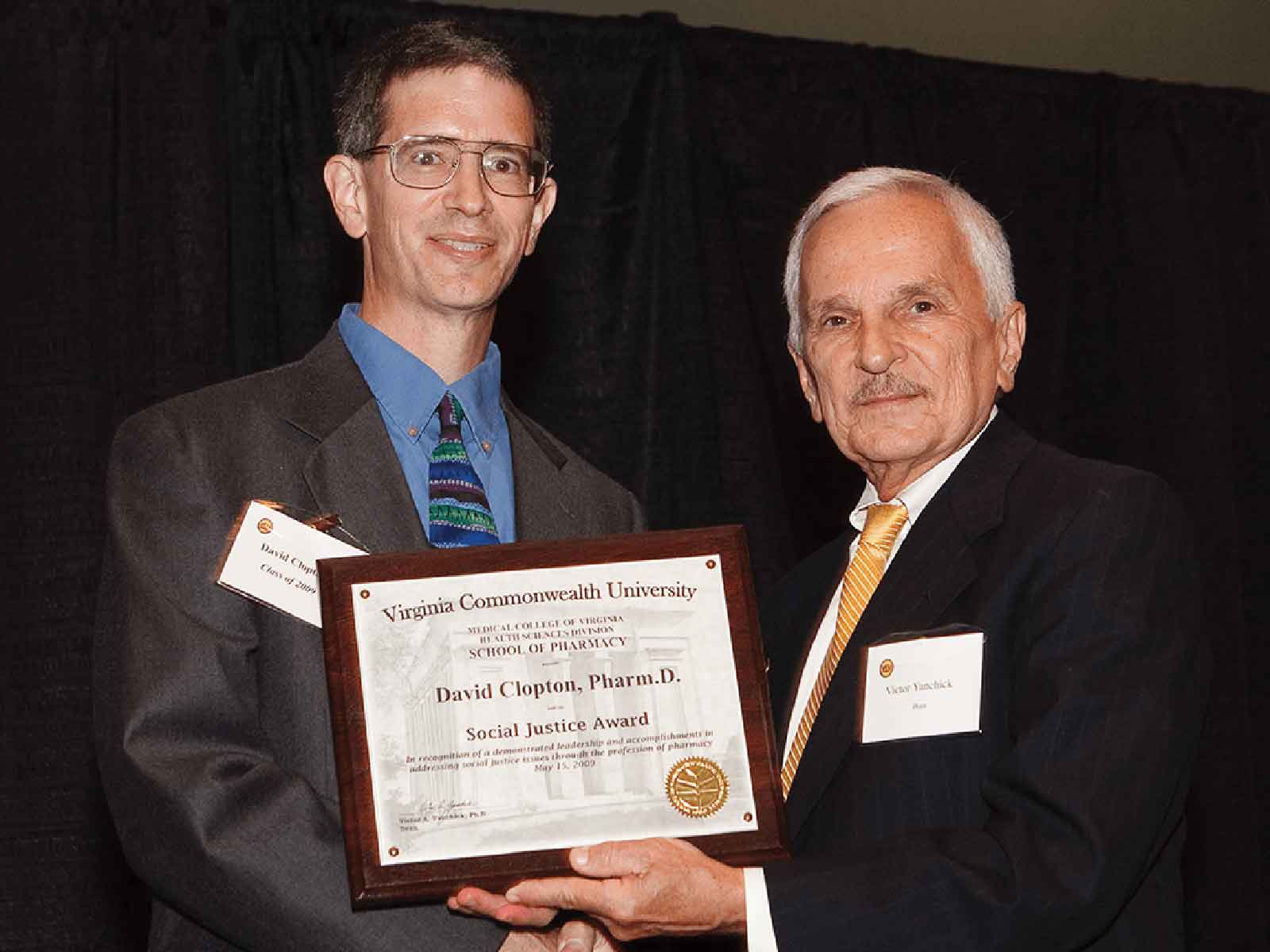Providing care without judgment
Pharmacy alumnus serves at medical clinic in Minnesota prison facility
By Kyra Molinaro

A personal mission to help underserved populations — inspired in part by a meaningful award he received as a student on Virginia Commonwealth University’s MCV Campus — has guided Cmdr. David Clopton, Ph.D., Pharm.D. (Pharm.D.’09/P; Cert.’09/HP), in his career.
A native of Papillion, Nebraska, Clopton came to VCU after earning a bachelor’s degree in industrial engineering from the University of Nebraska and a Ph.D. in biology from the University of California at San Diego. After working for several years in technology support for the National Institute of Justice in Washington, D.C., a long-held interest in pharmaceutical health care inspired him to change careers.
Clopton decided to pursue a Doctor of Pharmacy degree at VCU after learning about the School of Pharmacy’s geriatric pharmacotherapy program. “I had an interest in that area, and VCU was willing to look favorably at my nonpharmacy-related professional experience,” he says.
In his final year at VCU, he received the School of Pharmacy’s Peggy and Bruce McWhinney Social Justice Award, established to recognize a fourth-year pharmacy student who demonstrates a commitment to social justice and who shows promise of continuing this commitment in their career.
“I was incredibly honored,” Clopton says. “The financial part of the award was very helpful as I was in the process of going through a major career change while married with two children.”
Clopton received the award for his work with Christian Pharmacists Fellowship International and Remote Area Medical’s low-cost pop-up clinics in Wise, Virginia.
“Warren Weaver had established CPFI nationally, but the local chapter had died out by the time I came to VCU, so I helped revive it,” Clopton says of the VCU professor emeritus and former dean of the School of Pharmacy. “RAM was very eye opening because it was the one time of year that many people in the area could get access to medical and dental care. Many of us take health care for granted when, in reality, it isn’t available at all for lots of people.”
His pharmacy career began as a lieutenant in the U.S. Public Health Service after graduating from VCU. Today, Clopton continues to serve as a commissioned officer with the U.S. Public Health Service and works as a clinical pharmacist with the Federal Bureau of Prisons at the Federal Medical Center in Rochester, Minnesota. FMC Rochester houses offenders who require specialized or long-term medical or advanced mental health care.
Clopton oversees the facility’s hospice and palliative care clinic through a collaborative practice agreement with licensed physicians. As a result of this collaboration, he says, the clinic has achieved a pain control rate of 88% for patients enrolled in the clinic and a nearly 80% control rate for palliative symptoms, such as nausea, excessive drowsiness and constipation. As his is one of the only formal hospice and palliative care clinics in the Federal Bureau of Prisons, Clopton says he is proud of the progress that he has made with patients.
“We have some patients who have never had health care access before they got here and are very appreciative of the care they receive,” Clopton says. “I’ve even had some patients thank me and tell me they were going to miss working with me when they got released. I feel like I can make a difference knowing that my work matters to even one person.”
His faith, he says, has played a major role in his clinical career, inspiring him to provide care to those in need without judgement.
“Matthew 25 talks about making commitments to serve God,” he says. “Working at FMC Rochester is my way of doing this while learning what it means to walk humbly and act justly.
– Kyra Molinaro is a contributing writer for the alumni magazine.